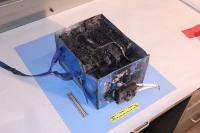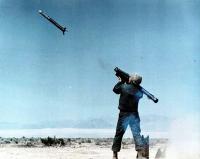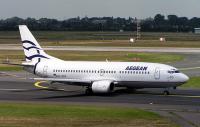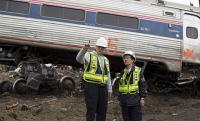-
Islamist militants planning “near-term attacks throughout Europe”: U.S.
The State Department has issued a warning to Americans planning travel to Europe, saying that Islamist terror groups are planning more attacks throughout the continent. In a warning unusual in its scale, the State Department said people should exercise vigilance when in public places or when using mass transportation.
-
-
Brussels attacks: a throwback to pre-9/11 terrorism
The terrible scenes in Brussels following a terrorist attack now claimed by Islamic State are a reminder of just how vulnerable airports can be. The most likely and realistic response is increasing security presence around airports with a greater number of random checks. There is no foolproof solution to this security issue, though, and that’s something governments are going to have to admit. Terrorists have the ability radically to disrupt transportation systems, potentially causing loss of life and economic damage in the process, and there is little that can be done to stop them. For some time, terrorists pursued the much more difficult task of attacking aircraft while largely ignoring easier targets. The attack in Brussels shows the reality of renewed efforts against “soft targets” with the potential to bring about chaos to transportation systems.
-
-
Mathematics helps search and rescue ships sail more safely in heavy seas

Fast ships deliver all kinds of services in fields such as disaster response, the fight against crime, the provision of supplies for oil and gas platforms, and the transportation of wind farm maintenance personnel. Each year, however, around 100 such ships worldwide are lost or damaged in heavy seas, with around 2,500 casualties in 2013. A unique new computer model built on highly complex mathematics could make it possible to design safer versions of the “fast ships” widely used in search-and-rescue, anti-drugs, anti-piracy, and many other vital offshore operations.
-
-
NTSB issues safety recommendations for on-flight lithium batteries

The National Transportation Safety Board (NTSB) issued two safety recommendations Tuesday physically separate lithium batteries from other flammable hazardous materials stowed on cargo aircraft and to establish maximum loading density requirements which restrict the quantities of lithium batteries and flammable hazardous materials.
-
-
Passengers on trans-Atlantic flights will spend more time in the air as a result of climate change
Planes flying between Europe and North America will be spending more time in the air due to the effects of climate change, a new study has shown. By accelerating the jet stream — a high-altitude wind blowing from west to east across the Atlantic — climate change will speed up eastbound flights but slow down westbound flights, the study found. The findings could have implications for airlines, passengers, and airports.
-
-
Faster airport lines with facial recognition
More and more people are travelling by plane, so automating airport security checks makes sense. The use of biometric features is a way to identify people at airports. New technology detects and tracks you from the second you arrive at the airport until you’re out of the arrivals hall at your destination.
-
-
Navigations systems are vulnerable to hackers
When it comes to route planning, drivers have almost blind faith in GPS. The technology plays an important role in identifying location and time in other areas, too. If hackers attack the system, they can cause great damage. Information security researches look to develop defensive measures.
-
-
Airlines could – and should – learn more from near misses

When it comes to flight safety, U.S. airlines are pretty good at learning from accidents. But new research shows airlines should be learning more from accidents that never happen. A new study finds that airlines are flying past an opportunity to increase safety by ignoring too many “near misses.”
-
-
DHS extends deadline for Real ID-compliant driver’s licenses

DHS on Friday announced that air travelers who are residents of several states which are yet to meet the Real ID federal security standards would still be able to use their driver’s licenses at U.S. airports until 22 January 2018. From that point on, if the traveler’s state does not yet offer a Real ID-compliant driver’s license, the passenger would be required to present an alternative identification document such as a passport. Five state and American Samoa were not given the extension, and must become compliant by January 2018.
-
-
ISIS can now use decommissioned shoulder-fired anti-aircraft missiles

Weapon experts say that ISIS engineers have developed advanced new weapon systems capable of shooting down passenger jets. Different terror groups have had access to these missiles since the 1970s, but experts note that storing such systems for long periods of time requires the development of thermal batteries to power the missiles when they are taken out of storage and into the field. Developing such batteries and maintaining them requires advanced knowledge.
-
-
Israeli Jewish passengers demand removal of Arab Israeli passengers from flight

Israeli Jewish passengers on an Aegean Airlines flight from Athens to Israel had asked Greek security officials to remove two Arab Israeli passengers from the airplane because these two passengers looked “suspicious.” The police was called to examine the two Arab Israelis’ papers and luggage, and check their names against European terrorist watch-list. The police found nothing unusual, but the Jewish Israeli passengers insisted on the removal of the two Arab Israelis, and the two accepted the captain’s offer to stay one more night in Athens at Aegean Airline’s expense.
-
-
Rail safety delays; Chicago’s trigger-happy police; killing Bangladeshi bloggers

In October the Congress agreed to extend the deadline for installing the systems to 2018, but earlier this month Congress extended the deadline for deploying speed-control systems yet again, this time until the end of 2020; By June 2016, all Chicago police officers will be equipped with non-lethal Tasers. The move is part of a plan by city authorities to curb the sharp rise in the number of people – all of them African Americans — killed by police shooting; in 2015 alone, at least four pro-democracy bloggers and a publisher were murdered while others went into hiding, or fled abroad, prompting widespread calls for protection of free speech in Bangladesh from the threat of radical Islamists.
-
-
TSA may now deny travelers’ requests for pat-downs instead of body scanners
The Transportation Security Administration (TSA) on Wednesday announced changes to traveler security screening at airports, allowing TSA personnel to require travelers to go through body scanners even if the passenger prefers a full-body pat-down instead.
-
-
San Bernardino mosque may be reason for barring British Muslim family from entering U.S.

Muhammad Mahmood, 47, who is a U.S. citizen and who a runs a car repair shop in San Bernardino, California, speculated that the reason his two brothers, their wives, and their children — all of them British citizens – have been barred from entering the United States to visit Disneyland was that he prays at the same mosque where one of the San Bernardino shooters, Syed Farook, used to pray.
-
-
Rail line service disruptions caused by sea level rise to increase dramatically
Rail services to and from the South West of England could be disrupted for more than 10 percent of each year by 2040 and almost a third by 2100, a new study suggests. The cost of maintaining tracks and sea defenses could also soar as predicted sea level rises, coupled with coastal storms and floods, pose major challenges for rail operators and governments.
-
More headlines
The long view
New Technology is Keeping the Skies Safe
DHS S&T Baggage, Cargo, and People Screening (BCP) Program develops state-of-the-art screening solutions to help secure airspace, communities, and borders
